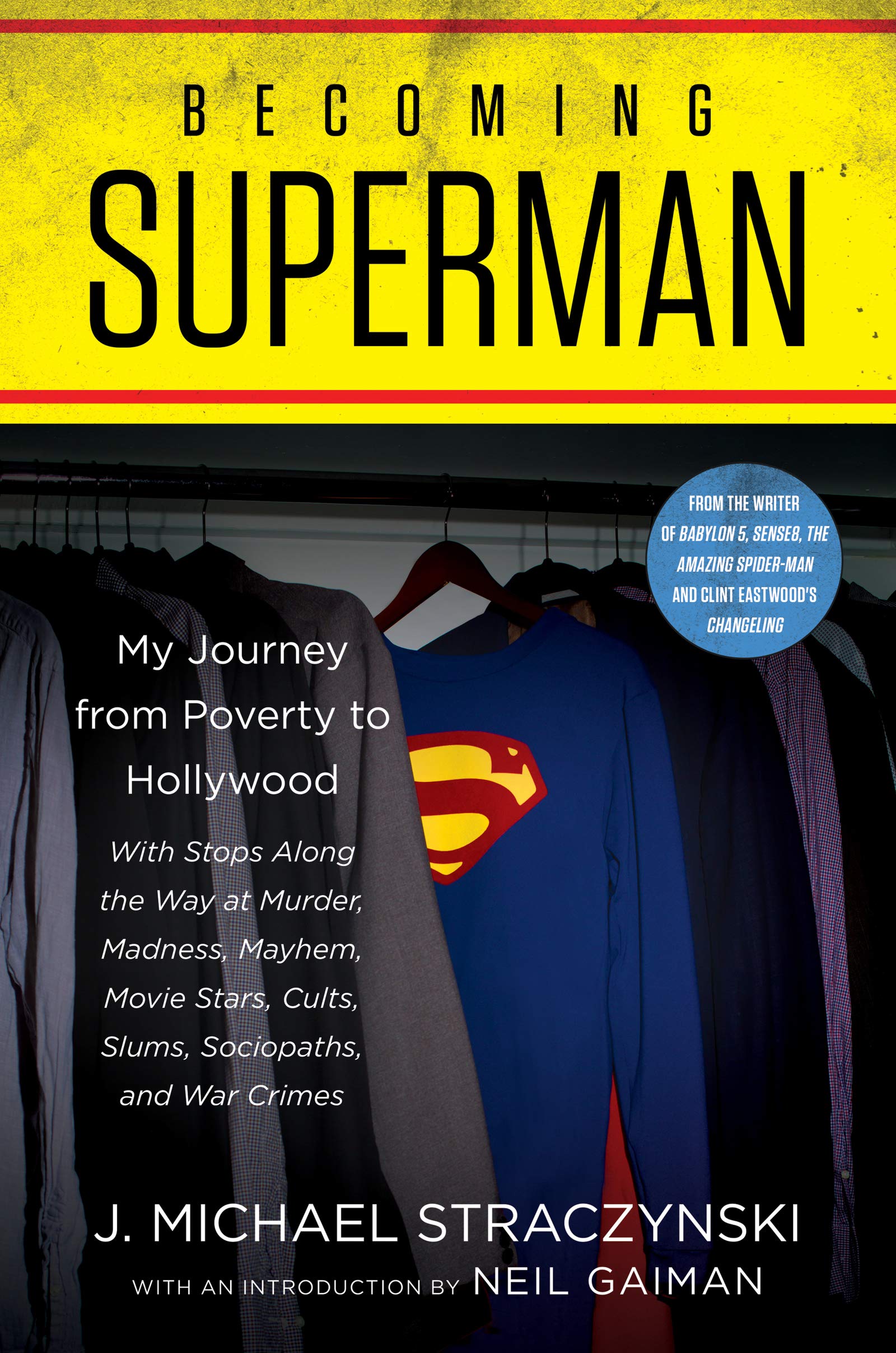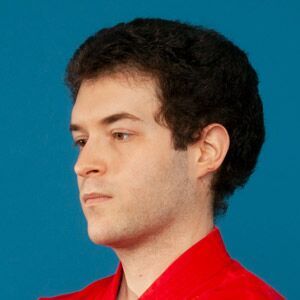'Becoming Superman' Reveals Origin Story for 'Babylon 5' Creator

In the foreword to "Becoming Superman" by J. Michael Straczynski, Neil Gaiman explains that Straczynski "works harder than anyone I've met in film and TV."
While I'm admittedly not a Hollywood insider, this description rings true for me. Since 1984, Straczynski has been writing for television — everything from campy animation to high-minded sci-fi. He also spent six years writing Marvel's "The Amazing Spider-Man" flagship comic book, and he wrote a BAFTA-nominated film starring Angelina Jolie and directed by Clint Eastwood. Whatever else you may think of Straczynski, you could never accuse the man of being idle.
Even before reading "Becoming Superman" (HarperCollins, July 2019), I always had the impression that Straczynski wrote so prolifically not because he wanted to but because he absolutely had to. The man simply has a lot of stories to tell and feels compelled to put pen to paper, because if he doesn't tell these tales, then no one else will.
Related: The Best Sci-Fi TV Shows on Netflix
Now, having read "Becoming Superman," I finally understand why that's the case — and the story leading up to it is not entirely a happy one. In this memoir (or autobiography — it's a little of both), Straczynski details a life of hardship, abuse and trauma, culminating in the darkest secret in his family's past: an honest-to-goodness murder mystery.
"Becoming Superman" is half family drama, half behind-the-scenes showbiz anecdotes, with a little writing advice and a few life lessons sprinkled in. Like Straczynski's TV shows and comics, the writing in the book is earnest, straightforward, incisive, often funny and occasionally very bitter. I don't know if it will have massive appeal beyond Straczynski's existing fan base — but given how many millions of fans he's entranced over the years, I imagine that's still a pretty sizable niche.
The origin story
Reading the first half of Straczynski's memoir, I couldn't help but recall the opening lines of Leo Tolstoy's "Anna Karenina": "All happy families are alike; each unhappy family is unhappy in its own way."
Get the Space.com Newsletter
Breaking space news, the latest updates on rocket launches, skywatching events and more!
To say that Straczynski came from an unhappy family would be an understatement. The first few chapters of the book aren't about the author at all, but rather, his grandfather Kazimir and his father, Charles. There's deception, violence, bigotry, war and incest — and that's all well before the author was even born.
Without going into great detail, Charles was something of a Nazi sympathizer, having tagged along with a small squadron of German soldiers while trapped in Poland during World War II. Again and again, throughout the book, Charles and his relatives allude to Vishnevo, a Belarusian town where an unrepeatable family secret must stay buried.
Since the mystery of Vishnevo is one of the primary threads that keeps the plot of "Becoming Superman" moving, I won't spoil it here. However, it's worth pointing out that Straczynski does an admirable job of sharing information about the story in dribs and drabs at a pretty regular pace throughout the book. Just like with a good detective novel, the reader must hunt for clues, content in the knowledge that everything will come together in a satisfying (albeit horrific) conclusion eventually.
What's a little harder to stomach is the incredible violence that the author and his two younger sisters endured at Charles' hands. Straczynski does not shy away from describing his father's continual verbal, psychological and physical abuse. From broken teeth, to sexual assault, to attempted murder, some of the scenes in "Becoming Superman" are so devastating, it feels like a miracle that Straczynski made it out alive — much less with a modicum of sanity intact.
In fact, if "Becoming Superman" has a major weakness, it's that the first half of the book is grueling in its depictions of poverty, callousness and viciousness. If the events described weren't true, the writing might feel downright lurid. For Straczynski, I imagine that finally breaking the silence about his traumatic childhood was cathartic. For young readers who are currently in similar situations, it may be instructive. But there's no denying that the second half of the book is a lot more fun to read.
Related: 7 Awesome Sci-Fi Space Stations from TV and Film
Sci-fi and superheroes
Straczynski spent his childhood moving across the country every few months, usually whenever Charles needed to dodge creditors after a failed get-rich-quick scheme. But just as things settled down for the author after college, the book settles into a much more comfortable pattern in its second half. If you're interested in Straczynski primarily as a creator, this is where the material will get really interesting.
After kicking off his writing career as a freelance journalist, Straczynski moved through the worlds of TV, comic books and feature films, where his credits include "The Twilight Zone" (1986), "Murder, She Wrote," "Rising Stars," "Spider-Man," "Changeling" and "World War Z."
Each chapter tells the story of a different show, and the behind-the-scenes tales are amusing and informative for anyone who was ever curious about how the entertainment industry sausage gets made. Over the past three decades, Straczynski has crossed paths with George R.R. Martin, Angela Lansbury, Ron Howard, the Wachowskis and a veritable "who's who" of genre film and television.
If those names mean anything to you, "Becoming Superman" is an easy sell; if not, you may still enjoy a glimpse into Straczynski's creative process. He discusses the fine points of writing for animation, live-action TV, comic books and feature films, as well as how he faced the challenges inherent in each genre. Even though shows like "The Real Ghostbusters" and "Captain Power and the Soldiers of the Future" were a little before my time, the chapters about them were probably my favorite in the book.
Straczynski and his writing crews took "Ghosbusters" and "Captain Power" extremely seriously, even though the series were ostensibly just tie-ins to sell toys. Each program had character depth, setting consistency and narrative continuity, and Straczynski staked his reputation on keeping these shows that way.
Of course, most readers who would go out of their way to read a Straczynski memoir are probably familiar with one (or both) of the major TV series that he created: "Babylon 5" and "Sense8." Those shows get plenty of attention, particularly toward the end of the book.
"Becoming Superman" isn't exactly a tell-all; you're not going to learn any juicy information that you didn't already know, or suspect, about what went on behind the scenes. But you will get a comprehensive explanation of how each show came to be — and how powerful network forces almost stopped "Babylon 5" dead in its tracks. (Netflix seemed a little more creator-friendly, at least up until it canceled "Sense8," despite fans' vociferous objections.)
Truth be told, I expected "Babylon 5" and "Sense8" to take up a large chunk of the book — and, even though I would have been happy to read more about them, I'm glad that they didn't. There is a tendency to focus on a creator's wins and minimize his or her losses. But, as Straczynski himself points out in the book, every part of his career shaped who he is as a writer, and as a person.
Walking out of a dream gig on "The Real Ghostbusters" was just as important as watching "Jeremiah" crumble, which paved the way to writing the story for the "Thor" film. If Straczynski seems like a massive success, it's only because he's been willing to endure so much failure along the way.
Up, up and away
If I had to guess (and I would be delighted to be wrong), I don't think that "Becoming Superman" is going to become the next "hardscrabble-child-becomes-celebrated-adult" bestseller, à la Tara Westover's "Educated" (Random House, 2018). Straczynski's book is a little too self-effacing, a little too fun and perhaps a little too niche to attract an enormous mainstream crowd.
For fans of Straczynski's work, though, that's a good thing. There's a sense in "Becoming Superman" that you aren't just listening to a stranger rattle off his life story. It's more like a casual acquaintance opening up to you over a few beers, and then you realize there was a good reason you liked this guy from the start.
So come for the favorite sci-fi characters, stay for the intriguing family mystery, and learn a thing or two about how great writers can come from unlikely origins.
You can buy "Becoming Superman" on Amazon.com.
- Best Science Fiction Books
- The Future's Coming: Why We Need to Prepare for Sci-Fi Tomorrows Today
- The Scariest Aliens Ever from Sci-Fi Films
Follow Marshall Honorof at @marshallhonorof. Follow us on Twitter @Spacedotcom and on Facebook.
Join our Space Forums to keep talking space on the latest missions, night sky and more! And if you have a news tip, correction or comment, let us know at: community@space.com.

Marshall Honorof is a senior editor for Tom's Guide, overseeing the site's coverage of gaming hardware and software. He comes from a science writing background, having studied paleomammalogy, biological anthropology, and the history of science and technology. After hours, you can find him practicing taekwondo or doing deep dives on classic sci-fi.









